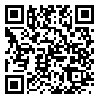
Scientific-Research Quarterly Journal of
Political and International Studies

Volume 1, Issue 3 (12-2024)
SRQPIS 2024, 1(3): 2-26 |
Back to browse issues page
Download citation:
BibTeX | RIS | EndNote | Medlars | ProCite | Reference Manager | RefWorks
Send citation to:



BibTeX | RIS | EndNote | Medlars | ProCite | Reference Manager | RefWorks
Send citation to:
Kazemi S A. Religious Scholars and the Issue of Unity and Convergence in the Islamic World. SRQPIS 2024; 1 (3) :2-26
URL: http://srqpis.knu.edu.af/article-1-38-en.html
URL: http://srqpis.knu.edu.af/article-1-38-en.html
PhD in Contemporary History of the Islamic World, Professor of Islamic Civilization and Biography, Al-Mustafa International University
Abstract: (1058 Views)
The issue of unity and convergence is one of the key objectives of Islamic law, a mandate of reason and Sharia, and a significant concern for reformers and prominent religious scholars throughout history. A cursory review of Qur'anic verses and narrations reveals that the mission of religious scholars—as agents and propagators of Islam—is universal, intended for the guidance of all humanity without being constrained by geographical or political borders.
The purpose of this study is to examine the question: How is the role of religious scholars in achieving unity and convergence assessed, and what strategies have been adopted in this regard? This research is based on the hypothesis that throughout Islamic history, religious scholars have consistently prioritized unity and convergence, offering valuable strategies to achieve these goals within the Islamic world.
Findings from this study, conducted through a descriptive-analytical method with a historical perspective, indicate that religious scholars have always been concerned with Islamic unity and have actively opposed divisive elements, which were often external enemies of Islam. These scholars have proposed and implemented significant strategies such as religious reform and the revival and reconstruction of Islamic thought, the rapprochement of Islamic sects, leadership centrality, consultation and institutionalization, and the establishment of an Islamic federation or union to achieve unity and convergence in the Islamic world.
The purpose of this study is to examine the question: How is the role of religious scholars in achieving unity and convergence assessed, and what strategies have been adopted in this regard? This research is based on the hypothesis that throughout Islamic history, religious scholars have consistently prioritized unity and convergence, offering valuable strategies to achieve these goals within the Islamic world.
Findings from this study, conducted through a descriptive-analytical method with a historical perspective, indicate that religious scholars have always been concerned with Islamic unity and have actively opposed divisive elements, which were often external enemies of Islam. These scholars have proposed and implemented significant strategies such as religious reform and the revival and reconstruction of Islamic thought, the rapprochement of Islamic sects, leadership centrality, consultation and institutionalization, and the establishment of an Islamic federation or union to achieve unity and convergence in the Islamic world.
Send email to the article author
| Rights and permissions | |
 |
This work is licensed under a Creative Commons Attribution-NonCommercial 4.0 International License. |



